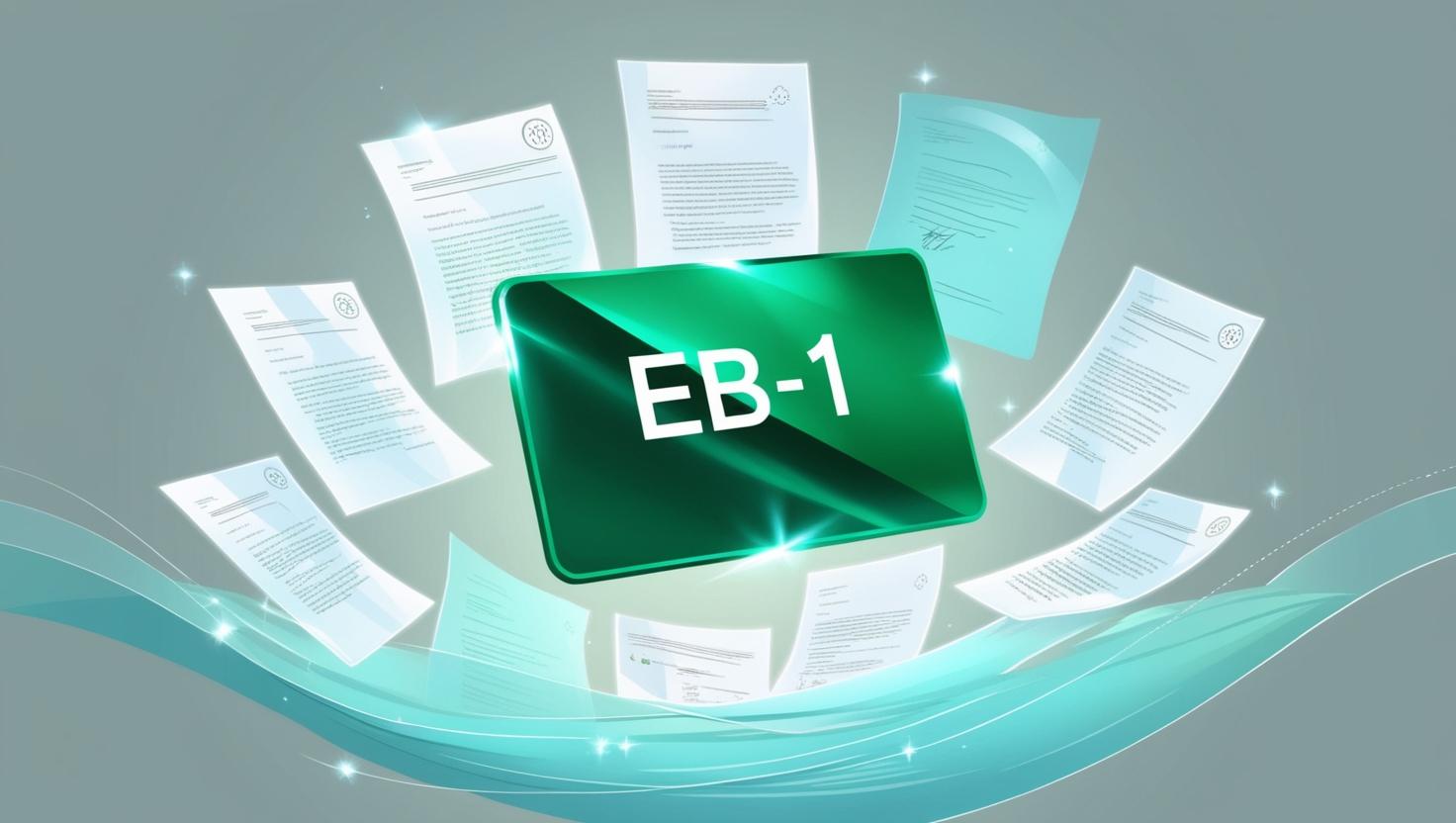Key Takeaways
- The EB-1A visa allows individuals with extraordinary ability to self-petition for a green card without employer sponsorship or labor certification
- You must meet at least 3 of 10 USCIS criteria or prove a one-time major internationally recognized achievement
- Premium processing reduces I-140 petition adjudication from 6-9 months to just 15 calendar days
- EB1A approval rates range between 65-70%, with success heavily dependent on evidence quality and presentation
- Unlike other employment-based visas, the EB-1A petition requires no job offer, making it ideal for entrepreneurs, researchers, and independent professionals
Your exceptional abilities deserve recognition beyond borders. The EB1A petition represents the fastest employment-based route to permanent residency for individuals who’ve achieved sustained national or international acclaim in their field. Unlike traditional green card applications, this first preference category lets you control your immigration destiny through self-petition.
What Makes the EB-1A Different
The alien of extraordinary ability category stands apart from other visa options because USCIS designed it for the top performers in sciences, arts, education, business, or athletics. You won’t need an employer to sponsor you or wait for labor certification approval. This autonomy matters tremendously for independent researchers, startup founders, and artists who refuse to compromise their vision for immigration status.
The petition process follows a two-step evaluation. First, immigration officers verify you’ve submitted initial evidence meeting at least 3 of the 10 criteria. Then comes the final merits determination where they assess whether your totality of evidence proves you’re among the small percentage who has risen to the very top of your field.
The 10 Criteria That Unlock Your EB-1A Petition
USCIS evaluates extraordinary ability through specific benchmarks. You need evidence for three out of these ten standards unless you’ve won a major internationally recognized prize like a Nobel Prize or Olympic medal:
- Receipt of lesser nationally or internationally recognized prizes or awards for excellence in your field
- Membership in associations requiring outstanding achievement as judged by recognized experts
- Published material about you in professional or major trade publications or other major media
- Evidence you’ve been asked to judge the work of others in your field or related areas
- Original scientific, scholarly, artistic, athletic, or business-related contributions of major significance
- Authorship of scholarly articles in professional publications or other major media
- Display of your work at artistic exhibitions or showcases
- Performance of a leading or critical role in distinguished organizations
- High salary or other significantly high remuneration compared to others in your field
- Commercial success in the performing arts demonstrated by box office receipts or record sales
Building Your I-140 Petition Strategy
The Form I-140 serves as your immigrant petition for alien worker status. Filing requires meticulous documentation that tells a compelling story about your national or international acclaim. You’ll pay approximately $700 for the base filing fee, with an additional $2,805 for premium processing if you choose that option.
Strong petition letters from recognized experts in your field can dramatically strengthen your application. These recommendation letters should explicitly address how you meet specific EB1A criteria and explain your sustained contributions to your area of extraordinary ability.
Many applicants make the mistake of submitting evidence without context. Published material about your work needs annotation explaining why the publication matters and what it reveals about your standing. High salary documentation should include comparative data showing you earn significantly more than others in similar positions.
Premium Processing vs Standard Timeline
Your EB-1A petition timeline depends on whether you elect premium processing. Standard I-140 processing typically takes 6 to 9 months, while premium processing guarantees a USCIS decision within 15 calendar days. That decision could be approval, denial, or a Request for Evidence.
The $2,805 premium processing fee is non-refundable even if you receive an RFE. However, the service provides certainty for applicants facing time-sensitive opportunities. Once your petition is approved, you’ll either file Form I-485 for adjustment of status if you’re in the United States, or proceed with consular processing if you’re abroad.
Why Professional Guidance Matters
The EB1A process rewards strategic presentation over raw credentials. Understanding how immigration officers interpret evidence, which scholarly articles carry weight, and how to frame business-related contributions of major significance can mean the difference between approval and denial.
Your petition requires proof that entering the United States will substantially benefit the country and that you’ll continue work in your area of expertise. This future-focused element trips up many applicants who focus exclusively on past achievements without articulating their ongoing impact.
Ready to transform your extraordinary ability into permanent residency? Book your free consultation to discuss how our specialized petition letter writing can position your EB-1A application for success.

